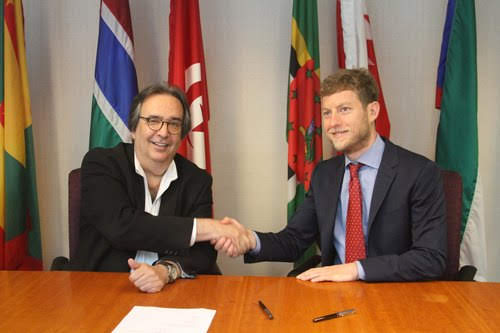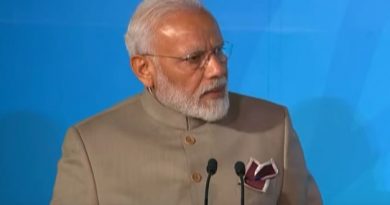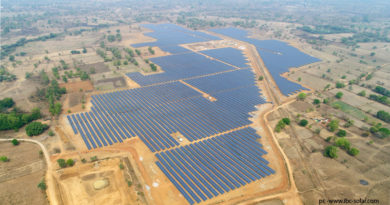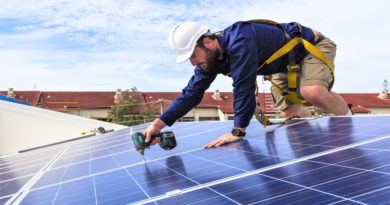OPIC Commits $25 Million Through SunFunder To Expand Access To Off-Grid Power in Africa and Asia
 James Polan, OPIC Vice President, SMEF, and Ryan Levinson, CEO SunFunder
James Polan, OPIC Vice President, SMEF, and Ryan Levinson, CEO SunFunder
The Overseas Private Investment Corporation (OPIC), the U.S. Government’s development finance institution, recently announced that it has commissioned $25 million in financing to the Solar Energy Transformation (SET) Fund, which will provide loans to companies developing off-grid solar products and solutions in Sub Saharan Africa and Asia.
OPIC’s investment consists of both junior and senior tranches, which will help catalyze private capital and impact-focused investors to achieve a target fund size of $85 million.
“OPIC’s support of this project advances several agency priorities,” said OPIC President and CEO Ray W. Washburne. “In addition to supporting projects that improve lives of poor people in developing countries, OPIC, through the 2X Women’s Initiative, is committed to supporting women-owned and women-led businesses like SunFunder.”
The SET Fund — SunFunder’s eighth and largest debt facility — will hold its first close in the coming months. As a 9-year fund, it will extend the range of financing that SunFunder already provides to the beyond grid solar sector.
SunFunder projects that the Solar Energy Transformation (SET) Fund will make individual loans to more than 50 off-grid solar companies, which in turn will enable more than three million people to gain access to clean, affordable energy and lighting.
“OPIC’s innovative participation in both the senior and subordinated tranches is highly catalytic for the energy access industry,” said Audrey Desiderato, SunFunder co-founder and COO. “Their commitment is key to unlocking private capital into the SET Fund, which will enable SunFunder to more rapidly meet solar companies’ growing demand for debt capital. This includes commercial and industrial projects that require longer tenor five- to seven-year funding.”
By introducing electricity to some of the hardest to reach communities in Africa, these projects advance the U.S. Power Africa initiative to bring electricity to more of the hundreds of millions of people in Sub-Saharan Africa who live without power.




